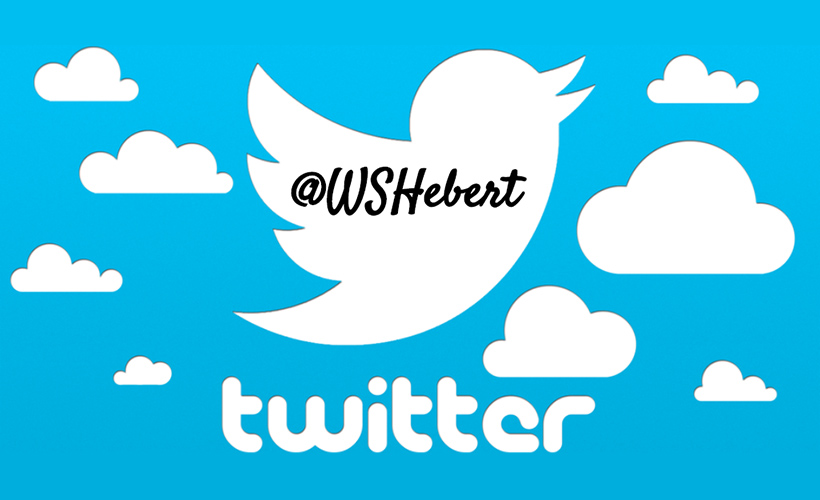Today is one of my favorite days online: Digital Learning Day! In honor of this day celebrating digital learning, “where educators share great ideas, amazing stories, and promising practices through social media and within their own schools and communities,” I want to highlight one of the greatest professional development tools: Twitter.
If you’d told me ten years ago that I would be saying that Twitter is my professional development best friend, I would have laughed in your face, but here we are.

I started my love affair with Twitter when I was a master’s student at the University of Houston. One of my assignments was to participate in a Twitter slow chat put on by the International Society for Technology in Education (ISTE). I’d certainly heard of Twitter chats before. Plenty of my undergrad professors at Kent State encouraged us to participate in chats put on by the National Council of Teachers of English (NCTE) or other similar professional organizations. I was reluctant because I was just never super comfortable with Twitter. I know Facebook. I like Facebook. Honestly, I’ve only recently gotten into using Instagram and I still don’t use it all that often. (Yeah, I know, I’m a bad millennial.)
I did have a smattering of experience with Twitter before this class. I created an account during the 2016 election with the hopes of following news organizations (and my husband’s live debate tweets), but that fizzled out quickly. I tried in my first year of teaching to create a class Twitter to send reminders to my Twitter-obsessed students, but after seeing some of their profiles, I decided that was a bad idea. A very bad idea. *shudder* Then I discovered Remind anyway. Much less frightening.
But, hey, it was a class requirement. No more putting off Twitter. It’s time to give it a real go. Before that assignment, I didn’t know what I was missing. I think my problem with Twitter in the past was simply that I never really knew how to utilize it.
Twitter Slow Chats

For those who are like I was and don’t know what a Twitter slow chat is…. it’s exactly what it sounds like: a slow conversation consisting of one question per day. People answer each question each day and can reply and expand on each other’s answers. A regular Twitter chat is a rapid-fire conversation that usually happens all in the space of about one hour. The slow chat is easier to squeeze into a busy schedule—I usually spend about only 10 to 20 minutes per day (and there are even websites that allow you to schedule tweets so you can get the whole week done in one day, but I enjoyed interacting each day). The slower format gives you more time to really get involved and delve into everyone’s answers and the shared resources.
This particular slow chat was a book study of Integrating Technology in the Classroom: Tools to Meet the Need of Every Student by Boni Hamilton using #ETCoaches. You’ll find many of the ideas that have resulted from my study of this textbook throughout the early posts on my blog. In fact, my very first post on using Paint actually came as a variation of a group project based on resources in the book.
The chat itself was a lot of fun; it challenged me to not only think through the questions each day but to confine my answers to 140 characters including the hashtag. (Twitter has since expanded to 280 characters, which is still a challenge.)
In that first experience, I met so many people from across the country. I was introduced to a whole world of new resources and ideas from both the book and the ideas of my fellow slow chat participants. I even discovered a free MOOC-ed through the Friday Institute from another chat participant’s tweet. If not for the Twitter chat, I would have never discovered this free course.
Twitter as a Professional Development Tool
Thanks to my sudden obsession with Twitter, I was also able to then participate in a regular Twitter chat put on by NCTE about teaching controversial books—#NCTEchat. As much as I like the slow chat format fitting to my busy schedule, the one hour fast-paced Twitter chat is exhilarating. I have been able to have some great conversations with fellow educators about controversial books, reading for fun, and student engagement, not to mention the discussions that happen around conferences.
Even outside of the structured chats, Twitter is full of educators collaborating and sharing ideas and resources. I’ve tweeted out questions asking for scholarly resources to support silent reading, and I’ve answered tweets about good books for students based on interest and grade level.
Now that I’m teaching a course on educational technology for pre-service teachers, I get to share the world of educational Twitter with my students. When I first introduce Twitter as a professional development tool, I am met with skepticism. As I said before, I initially felt the same way, so I understand their hesitation, especially in our current politically charged climate.
Here’s the message that I try to convey to them, and I’ll try now to convey it to you: Twitter is malleable. It is what you make of it. If you follow friends and family, it’s a social network to keep in touch with their lives. If you follow news outlets and voices on the left, you’ll have a liberal Twitter, and if you follow news outlets and voices on the right, you’ll have a conservative Twitter. If you follow educators and educational organizations, you’ll have an environment of professional development.
My own Twitter landscape has evolved over the years, too. When I participated in that first slow chat, my Twitter filled with the voices of K–12 educators and administrators, with conversations around teaching resources and ideas. As I’ve transitioned into higher education and started in my doctoral program, I’ve started following more academic accounts, and now I also see resources for academic publishing and survival in academia.
The key is taking ownership of what you want to see. When things start to get a bit off topic, I review who I follow. And I always make sure that the content I’m putting out from my own account reflects who I am as an educator and a professional.
Twitter has been one of the biggest pieces to building my Professional Learning Network (PLN) and creating my online presence. I’ve learned and shared so much over the past several years, and I plan to continue utilizing Twitter to improve myself. I hope you can, too.
Originally published on Mrs. Hebert’s Classroom on February 22, 2017.
See also:


